On August 8, 2024, Noah Lyles sparked concern when he left the race track in a wheelchair. This was after he competed in the men’s 200-meter final, where he won a bronze medal. At the time, the athlete, dubbed the “Fastest man in the world,” was competing at the 2024 Paris Olympics.
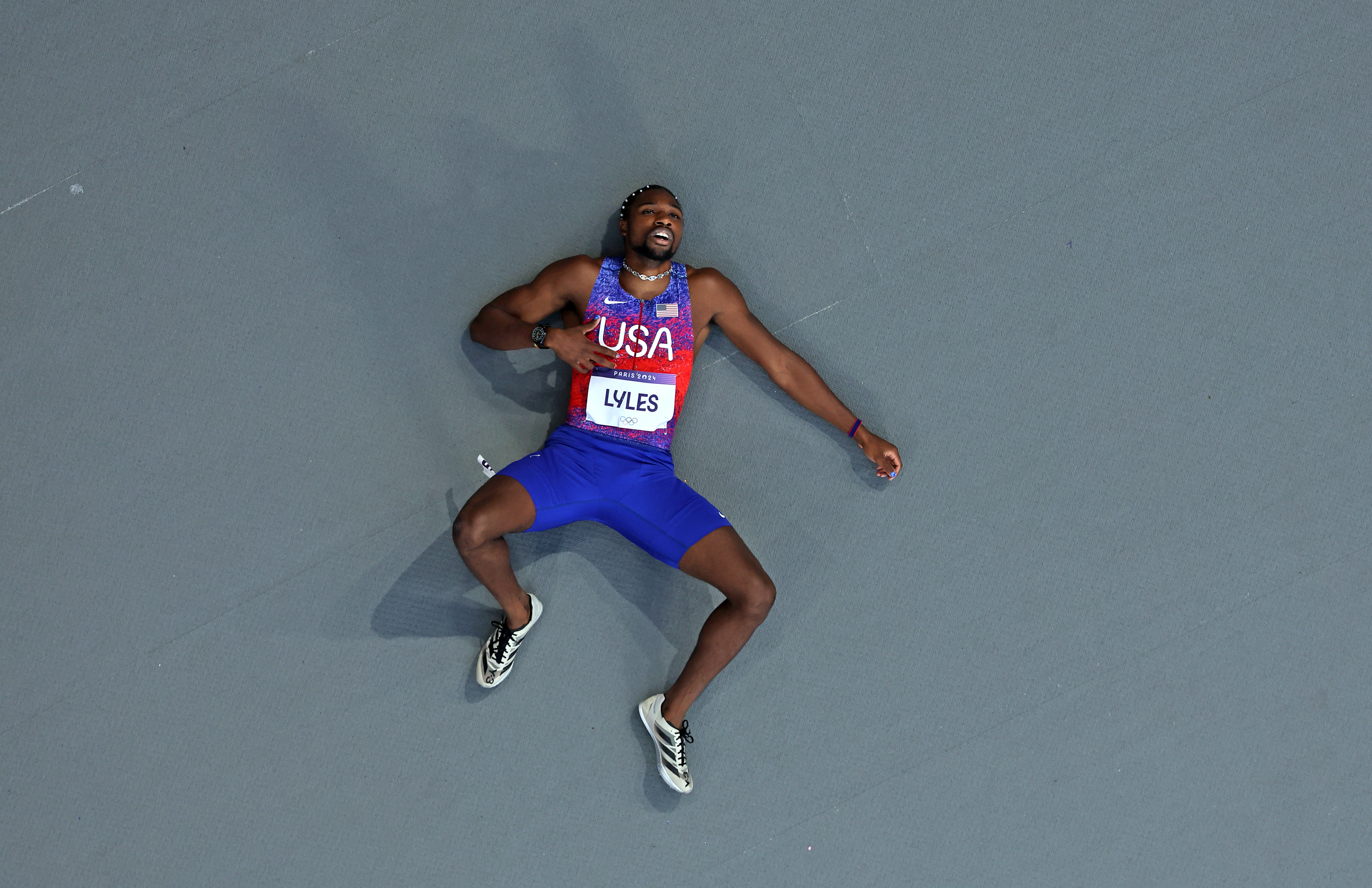
Noah Lyles of Team US reacts after competing in the Men’s 200m Final at the Paris Olympic Games on August 8, 2024, in Paris, France | Source: Getty Images
Two days before the final, Lyles got diagnosed with COVID-19, but he still chose to race for the US. After coming in third, he struggled to walk on the field before laying down on the race track. It appeared he was breathing heavily before leaving the arena in a wheelchair.
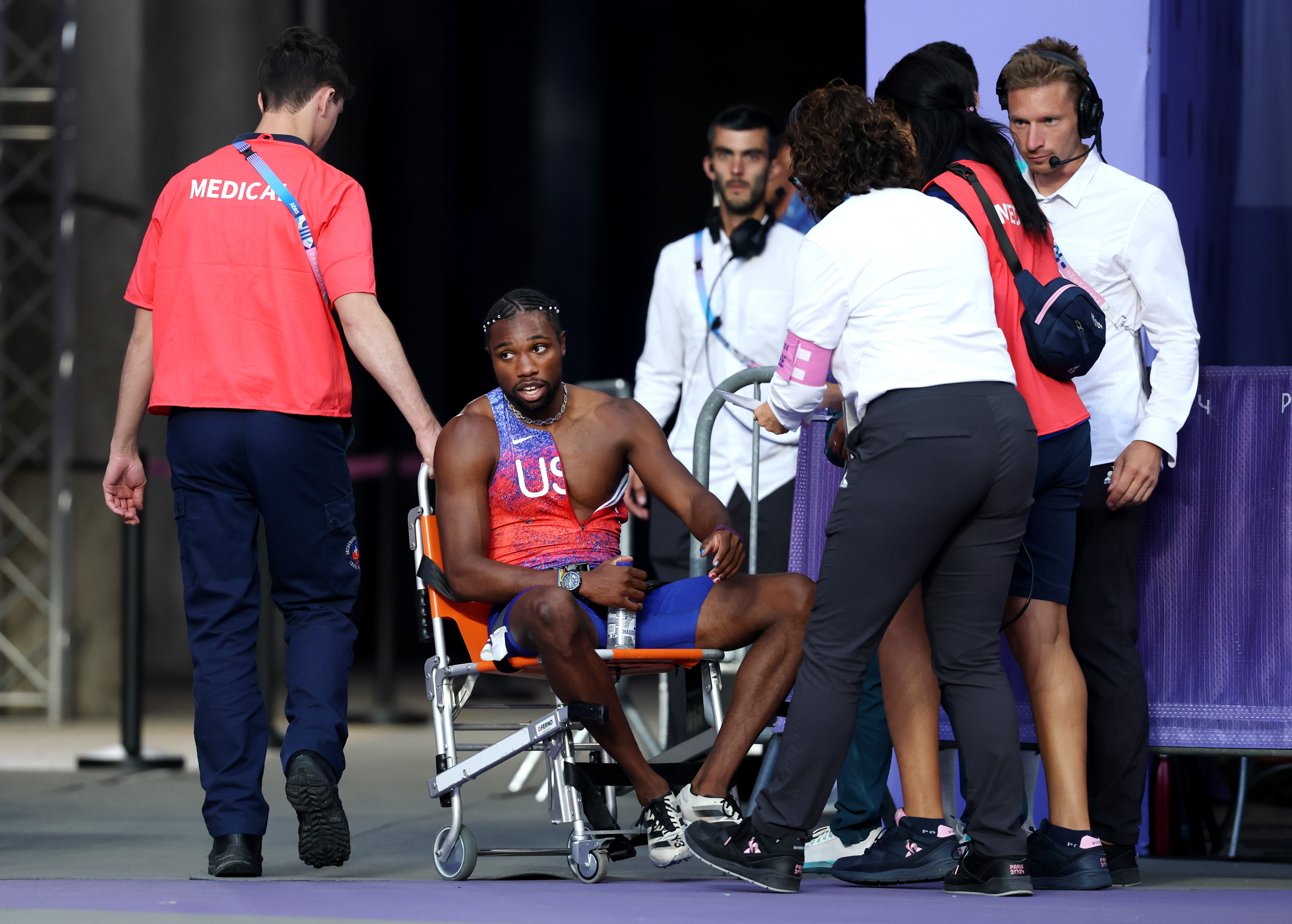
Noah Lyles of Team US taken off from the track with a wheelchair after competing in the Men’s 200m Final at the Paris Olympic Games on August 8, 2024, in Paris, France | Source: Getty Images
The 27-year-old was attended to by the medical staff before he returned to the track to speak to the press. As reported by NBC Olympics’ Lewis Johnson, after seeing Lyles leave in a wheelchair, he ran underneath the stadium to inquire about his well-being.
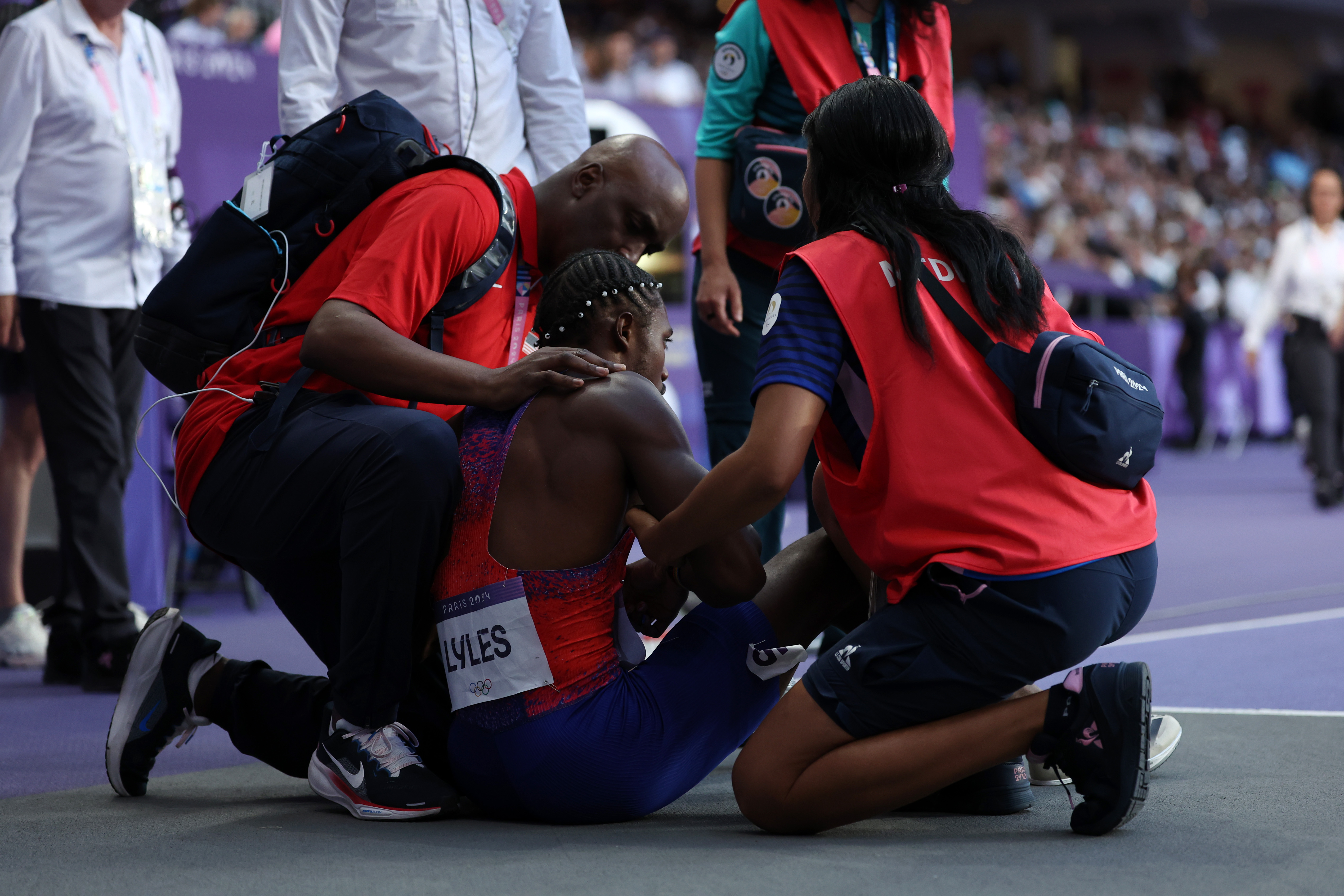
Noah Lyles of Team US gets assisted by medical staff after competing in the Men’s 200m Final at the Paris Olympic Games on August 8, 2024, in Paris, France | Source: Getty Images
Instead, he encountered Keisha Caine Bishop, the athlete’s mother “who was distraught trying to find him as well.” Together, they found Lyles receiving medical attention. Bishop confirmed her son’s coronavirus diagnosis on August 6.
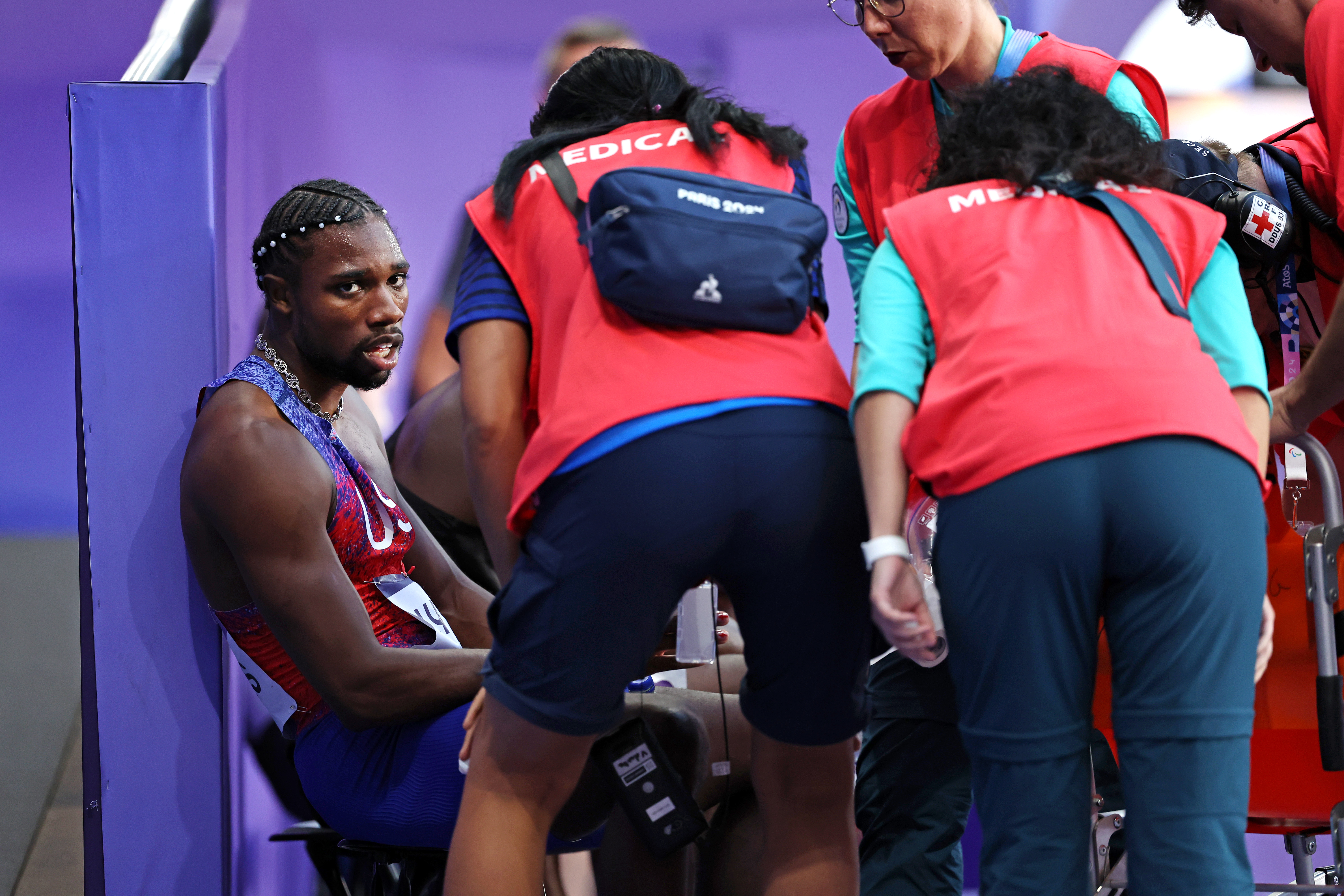
Noah Lyles of Team US gets assisted by medical staff after competing in the Men’s 200m Final at the Paris Olympic Games Paris on August 8, 2024, in Paris, France | Source: Getty Images
A few minutes after the sprinter got attended to, he spoke to Johnson during a live broadcast. Lyles revealed to the journalist that when he woke up at around 5 a.m. on August 6, he felt “horrible.”
He knew what ailed him was more than soreness from the previous 100-meter race, so he woke the doctors and got tested. Unfortunately, the result came back positive for the virus. “My first thought was not to panic, thinking, ‘I’ve been in worse situations, I’ve run with worse conditions,'” the athlete shared.
Instead, he tackled the virus day by day, quarantining himself, and trying to stay as hydrated as possible. The athlete noted how having the coronavirus took its toll on him, but he had never been more proud of himself.

Noah Lyles of Team US taken off from the track with a wheelchair after competing in the Men’s 200m Final at the Paris Olympic Games on August 8, 2024, in Paris, France | Source: Getty Images
Besides his COVID-19 diagnosis, Lyles has been open about having asthma. The Centers for Disease Control and Prevention (CDC) states that having asthma can place people “at increased risk for getting very sick from COVID-19.”
But before contracting it, on August 4, Noah Lyles competed in the men’s 100-meter dash and took gold. He was set to compete again the day after the wheelchair incident in the men’s 4x100m relay race.
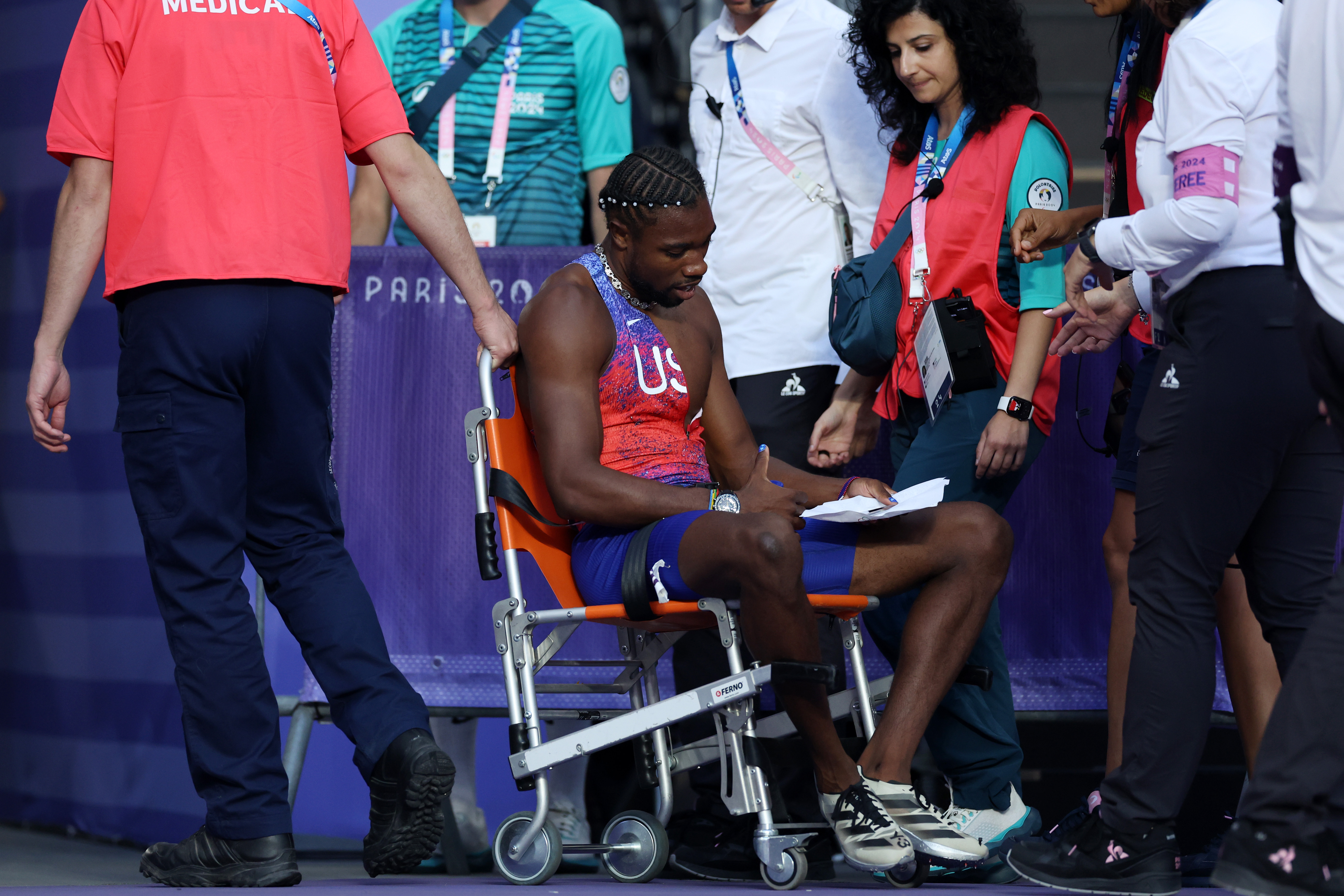
Noah Lyles of Team US taken off from the track with a wheelchair after competing in the Men’s 200m Final at the Paris Olympic Games on August 8, 2024, in Paris, France | Source: Getty Images
But, later on the same day of the incident, he revealed that he was done competing at the Paris Olympics. After failing to win in what is considered his strongest event, the 200-meter race, the athlete wrote a post on Instagram.
He said, “I believe this will be the end of my 2024 Olympics,” before sharing that it wasn’t the Olympics he’d “dreamed of but it has left me with so much joy in my heart.” The star hoped all those who watched enjoyed the show.
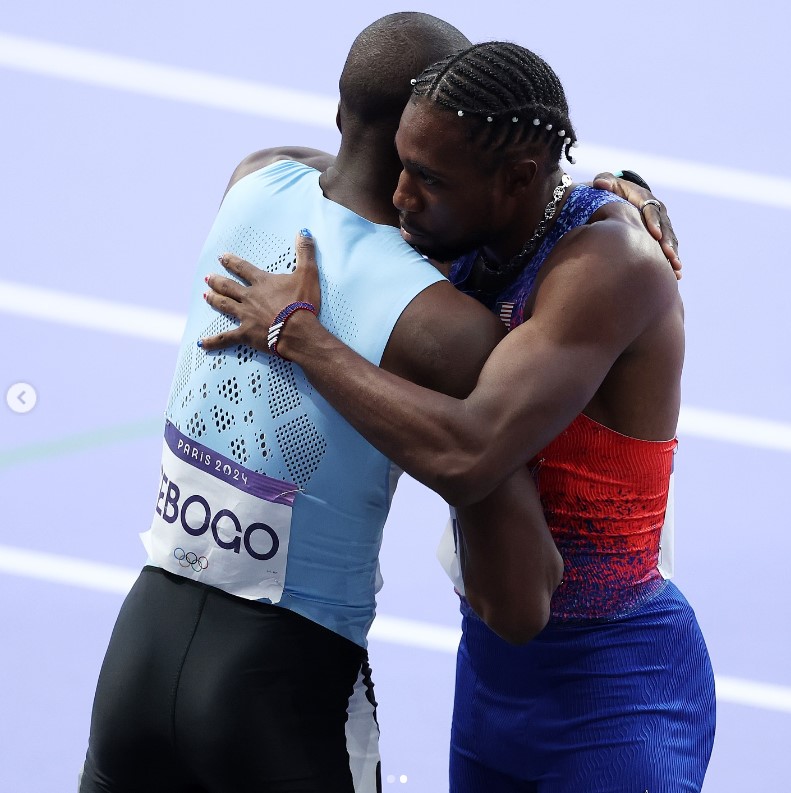
Noah Lyles hugging Letsile Tebogo after the men’s 200m final at the Paris Olympics in a photo dated August 9, 2024 | Source: Instagram/nojo18
“Whether you were rooting for me or against me, you have to admit you watched, didn’t you? 😉 See you next time,” he concluded. The post included a picture of him kneeling on the track as if praying, and another one of him hugging the gold winner of the race, Botswana’s Letsile Tebogo.
Lyles was the runner expected to win the 200-meter race after having a great start in the 100-meter final. His time for Thursday’s race was 19.70 seconds, while his US teammate Kenneth Bednarek took silver with a time of 19.62 seconds.
Tebogo took the gold with a time of 19.46 seconds. Unfortunately, this isn’t the first time that the coronavirus has badly affected Lyles’ performance at the Olympics. When he competed in the 2020 Tokyo Olympics, it was during the height of the pandemic.
The Olympics being delayed by a year and the stands being empty led Lyles to become depressed. His performance got affected, but he was inspired to do better in Paris. So far, the Paris Olympics have seen 40 athletes test positive for COVID-19, according to the “Today” show.
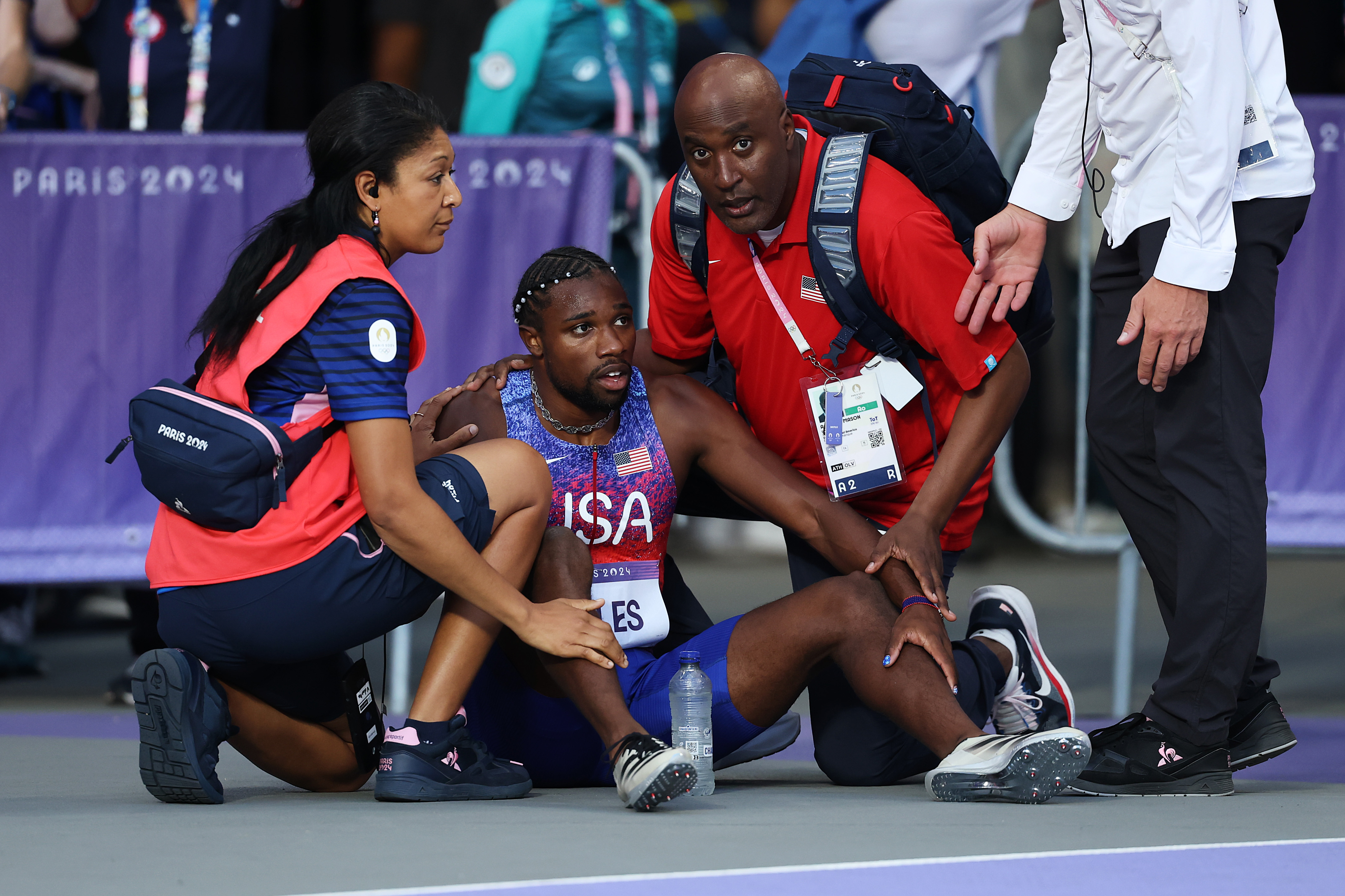
Noah Lyles of Team US gets assisted by medical staff after competing in the Men’s 200m Final at the Paris Olympic Games on August 8, 2024, in Paris, France | Source: Getty Images
The US Olympic and Paralympic Committee revealed there are protocols in place to reduce the risk of the coronavirus spreading among Team US athletes. Before the Games began, an infection prevention program was implemented.
The program’s “Don’t let a cold keep you from the gold” guideline encourages US athletes to wash their hands regularly. They are also urged to wear face masks while indoors and when traveling from the US to Paris. Those who contract an infectious disease receive treatment and medication.

Noah Lyles of Team US is taken off from the track with a wheelchair after competing in the Men’s 200m Final at the Paris Olympic Games on August 8, 2024, in Paris, France | Source: Getty Images
They are also provided with a private room to avoid infecting their roommates. The Committee assists with transport so the infected athlete doesn’t have to ride on the bus with others. Their meals are also delivered to them.
Whenever they interact with people, they are expected to wear face masks. But, the athletes are still allowed to train and compete “as long as they feel up to it.”
On its website, the CDC stated, “Mass gatherings are associated with unique health risks, including an increased risk for respiratory illnesses.” It urged those planning to travel to Paris for the Games to ensure they are up to date on their “routine and recommended vaccines, including for COVID-19.”



